Apollo 1: The Fatal Fire

The Apollo 1 group, from left to right, Roger Chaffee, Ed White and Gus Grissom.
Credit: NASA/JPL-Caltech
The Apollo program changed perpetually on Jan. 27, 1967, when a blaze fire cleared through the Apollo 1 charge module amid a dispatch practice test. The three men inside died regardless of the best endeavors of the ground group. It would take over year and a half, and broad overhauls, previously NASA sent more men into space.
NASA had an elevated objective, set by President John F. Kennedy in 1961, to arrive a man on the moon and return him securely to Earth before the decade's over. Prior Mercury and Gemini flights had been the initial moves toward that objective, testing how people carried on in space and how to do specialized shuttle techniques, for example, meet. Presently the Apollo missions would take space travelers the distance to the moon for orbital missions and landing missions. The primary kept an eye on mission — an Earth-circling mission — was initially assigned Apollo Saturn-204, or AS-204, yet was later renamed Apollo 1.
The Apollo 1 fire was a troublesome time for NASA and its space explorers, however the changes in space explorer wellbeing enabled the office to finish whatever remains of the program with no further fatalities. The organization likewise met Kennedy's objective of getting a man on the moon in 1969, amid Apollo 11.
NASA had an extraordinary service regarding the Apollo 1 space explorers on the 50th commemoration of their passings in 2017, which included revealing another display at the Kennedy Space Center demonstrating the seals of the harmed order module.
The space explorers
The Apollo 1 group administrator, Virgil "Gus" Grissom, was an Air Force veteran of the Korean War. He was picked was among NASA's first gathering of seven space explorers, the Mercury Seven. Grissom was America's second individual in space in 1961. On that mission, Mercury's Liberty Bell 7, the bring forth entryway blew for obscure reasons upon splashdown. Grissom wound up in the water and was safeguarded by a helicopter (which at first attempted, futile, to get the shuttle; the rocket was later pulled from the sea floor in 1999).
Some in the Astronaut Office were distrustful that Grissom's notoriety would recoup (numerous trusted Grissom blew the incubate; he swore he didn't). Notwithstanding, Grissom effectively told the main Gemini flight, Gemini 3, and was chosen to do likewise for Apollo.
Kindred spaceflight veteran Ed White, an Air Force lieutenant colonel, was the principal American to make a spacewalk, on Gemini 4 out of 1965. The pictures of him taking off in space for 23 minutes are still every now and again observed today; it is viewed as one of history's most noteworthy spacewalks.
Roger Chaffee was a prepared Navy lieutenant authority who joined the program in 1963. Despite the fact that a new kid on the block in space, he had invested years supporting the Gemini program, most openly as CapCom on Gemini 4. Presently getting an opportunity to fly following five years in the program, he stated, "I figure it will be a ton of fun."
Gone in a moment
Each space explorer in the Apollo program had flight involvement, and numerous were aircraft testers. They were accustomed to seeing machines a work in progress and managing delays, and evaluating the planes' availability for flight. In the perspective of a considerable lot of these space explorers, the Apollo charge module simply wasn't prepared yet. Building changes were still in advance as NASA arranged for the commencement test.
On his last visit home in Texas, Jan. 22, 1967, Grissom got a lemon off a citrus tree in the lawn. His better half, Betty, asked what he would do with it. "I will hang it on that shuttle," he replied as he kissed her farewell. He hung it on the pilot training program after he touched base at the Cape.
The morning of the test, the group suited up and distinguished a foul smell in the breathing oxygen, which took around a hour to settle. At that point the interchanges framework misbehaved. Yelling through the commotion, Grissom vented: "How are we going to get to the moon on the off chance that we can't talk between a few structures?"
With interchanges issues delaying, the training commencement was held. At that point at 6:

NASA administrators sit at the witness table before the Senate Committee on Aeronautical and Space Services, chaired by Senator Clinton P. Anderson, on the Apollo 1 (Apollo 204) accident. The individuals are (L to R) Dr. Robert C. Seamans, NASA Deputy Administrator; James E. Webb, NASA Administrator; Dr. George E. Mueller, Associate Administrator for Manned Space Flight, and Maj. Gen. Samuel C. Phillips, Apollo Program Director.
Credit: NASA
The board listed a damning set of circumstances, failures and recommendations for future spacecraft designers to consider.
The U.S. Senate conducted its own investigation and hearings and published recommendations of its own, while saying NASA's failure to report its problems with Apollo "was an unquestionably serious dereliction."
A few changes were made to the plan of the Apollo rocket to enhance team security. The combustible oxygen condition for ground tests was supplanted with a nitrogen-oxygen blend. Combustible things were evacuated. Another regard created between the space explorers and the contractual workers concerning configuration changes, which were actualized all the more successfully. Most outstandingly, the entryway was totally updated with the goal that it would open in unimportant seconds when the team expected to get out in a rush. [Photos: The Apollo 1 Fire]
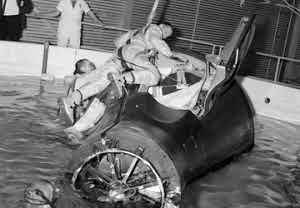
Decades later, NASA reviews the Apollo 1 occurrence each January in a yearly Day of Remembrance. It additionally respects the Challenger and Columbia teams, who passed on in 1986 and 2003, individually. Further, a show regarding the Apollo 1 group was opened at the Kennedy Space Center in 2017, showing the trapdoors that were on the shuttle. The display was done in conference with the space travelers' families.
Latest on Apollo 1: The Fatal Fire
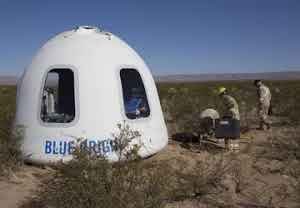
Window Wars in Space: Quest for the 'Big View' High Above Earth
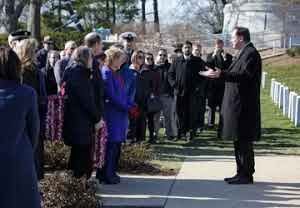
NASA Honors Fallen Astronauts in 'Day of Remembrance' Ceremonies Today
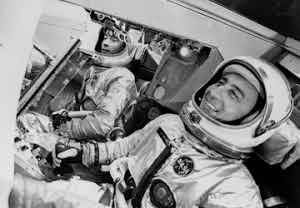
How John Young Smuggled a Corned-Beef Sandwich into Space
Gemini IV: Inside NASA's First Spacewalk Mission (Photos)
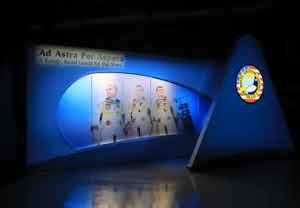
Remembering the Apollo 1 Crew: 'Ad Astra Per Aspera' Exhibit in Pictures
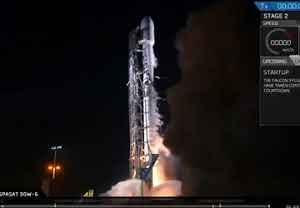
SpaceX Launches Hispasat Satellite on Landmark 50th Falcon 9 Flight
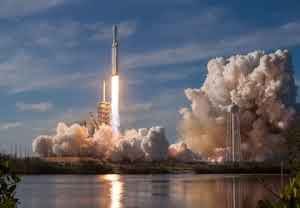
SpaceX's Next Falcon Heavy Rocket Launch Will Be an Epic Rideshare: Report
Hi, I found some acronyms/abbreviations in this post. This is how they expand:
Thank you for praising my post.